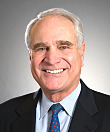07.26.2011
|
Updates
On July 22, 2011, the U.S. Court of Appeals for the D.C. Circuit issued its highly anticipated opinion in the challenge to SEC Rule 14a-11 brought by the Business Roundtable and the U.S. Chamber of Commerce. Rule 14a-11 would have required companies subject to the Exchange Act’s proxy rules to include in their proxy materials shareholder nominees for director who met specified conditions. In the strongly worded opinion, written by Judge Ginsburg, the court vacated Rule 14a-11, characterizing the SEC proxy access rule as “arbitrary and capricious” and stating that the SEC had failed “adequately to assess the economic effects” of Rule 14a-11. The court did not address the constitutional challenges raised by the plaintiffs under the First Amendment.
SEC Did Not Adequately Account for Costs and Benefits of the Rule. The court stated that the SEC "inconsistently and opportunistically framed the costs and benefits of the rule; failed adequately to quantify the certain costs or to explain why those costs could not be quantified; neglected to support its predictive judgments; contradicted itself; and failed to respond to substantial problems raised by commenters." For example, the court noted that the SEC estimated that proxy access would affect a relatively small number of companies for purposes of estimating costs. At the same time, the SEC argued that a much larger number of companies and their shareholders would derive benefits from Rule 14a-11. The court delivered particularly strong criticism of the SEC’s decision to apply the proxy access rule to mutual funds and other investment companies, noting that these types of companies are already subject to regulation under the Investment Company Act of 1940 and that application of the proxy access rule could impose significant costs on investment companies with no discernible benefits to the companies and their investors. The court was also sympathetic to the plaintiffs’ concern that union and state pension funds might use the proxy access rules to extract concessions from companies that were wholly unrelated to increasing shareholder value.
The Future of Proxy Access
SEC's Rule-Making Process Is Tested. The court’s decision is a stunning rebuke of the SEC's rule-making process and represents the second time in recent years that Eugene Scalia (on behalf of the Chamber of Commerce) has convinced a court to vacate a substantive SEC rule for obvious procedural flaws. The Business Roundtable and U.S. Chamber of Commerce issued a joint statement touting the decision as a “big win for America’s job creators and investors.” On the other side, the SEC issued a statement expressing disappointment and noted that it is exploring its options. The SEC also noted that the rule permitting shareholders to submit proposals for proxy access, which has not been challenged, remains unaffected by the court’s decision. The SEC stayed the effectiveness of this rule, which was adopted as an amendment to Rule 14a-8(i)(8), pending the court’s decision on Rule 14a-11, stating that it viewed the two rules as “intertwined.” Because the case was decided on procedural grounds, it could also spur procedural challenges to other rules adopted by the SEC.
SEC May Appeal or Revise Rule. Pursuant to special D.C. Circuit rules, the SEC will have 60 days from the decision, or until September 22, 2011, to respond to the court’s decision before it becomes effective. If the SEC accepts the court’s decision and does not appeal (or seek a review en banc), it would have to institute a new rule-making procedure and re-adopt the rule with revised economic and legal analysis through a new vote among its Commissioners. In any event, the SEC will be hard-pressed to turn the proxy access rule around quickly enough through a new rule-making for Rule 14a-11 to be available for the 2012 proxy season, since the same plaintiffs—and perhaps others—will undoubtedly also protest and appeal any future rule-making on this particular subject. Furthermore, review by the D.C. Circuit could easily take an additional four to six months.
Additional Information
This update is intended only as our summary of the D.C. Circuit opinion.
© 2011 Perkins Coie LLP






